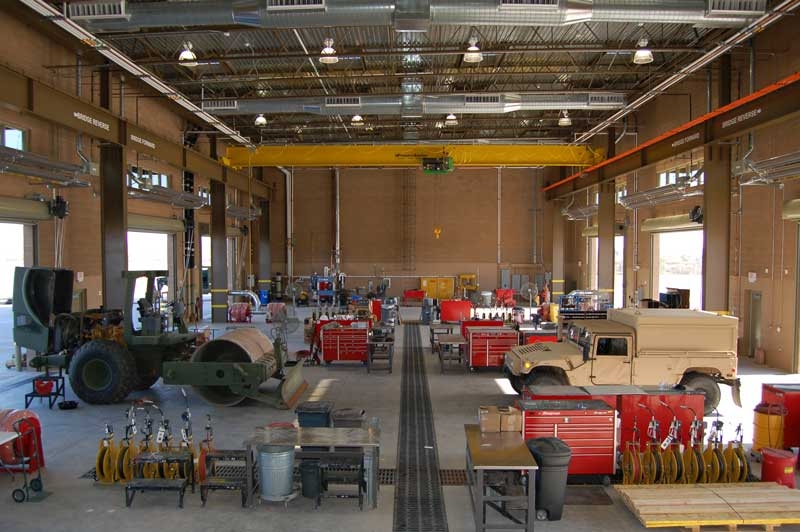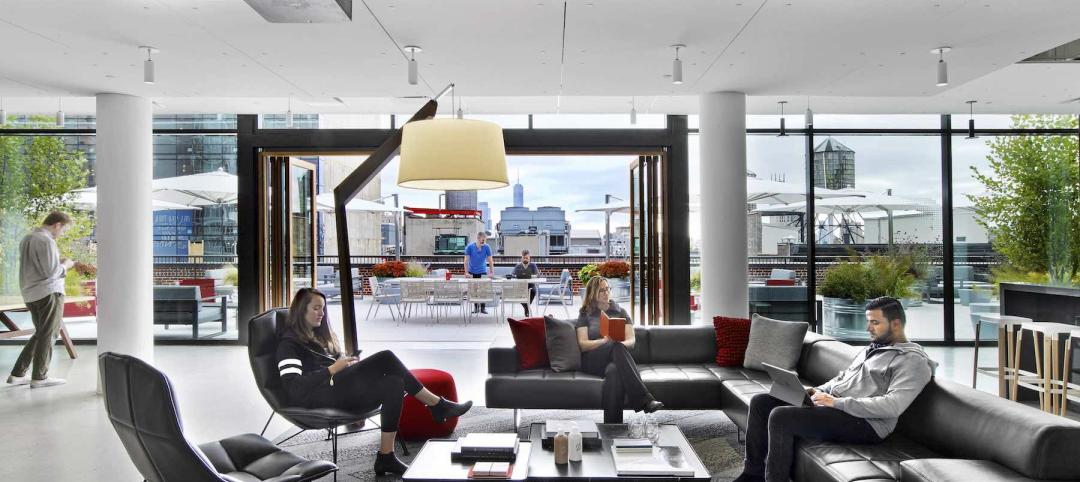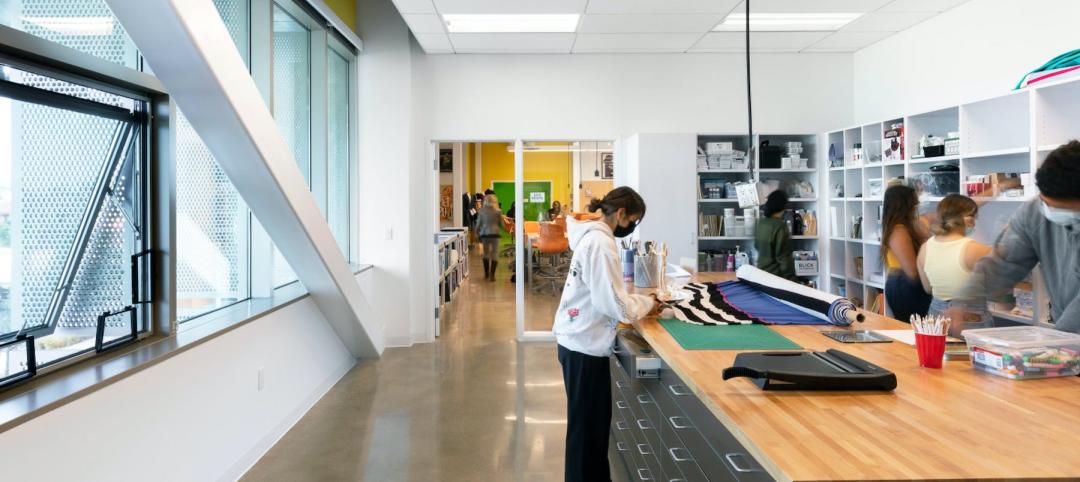The Arizona Army National Guard (AZ ARNG) Readiness Center in Florence, Ariz., has been awarded LEED Silver certification, as established by the U.S. Green Building Council (USGBC) and verified by the Green Building Certification Institute (GBCI). Science Applications International Corporation (SAIC), through its wholly owned subsidiary SAIC Energy, Environment & Infrastructure, LLC, provided design and contract administration services for the facility, including sustainable design and LEED administration services.
LEED certification of the AZ ARNG Readiness Center was based on a number of green design and construction features SAIC implemented that positively impacted the project and the broader community. These features included:
- Preferred parking stalls for low-emitting and fuel-efficient vehicles and covered parking for motorcycles to encourage use of alternative means of transportation.
- Exterior and interior lighting system designs that reduce night sky light pollution and support the nocturnal ecosystem.
- Mechanical systems that reduce energy costs by 29%, thus saving money for AZ ARNG while lessening the building’s impact on greenhouse gas emissions.
- Low-flow plumbing fixtures that result in a 40% reduction in water usage, saving money and contributing to a more secure water future.
- Solar heated water system that reduces energy costs for hot water.
- Sustainable materials that contained 30% recycled content--more than 20% of which was harvested and manufactured within 500 miles of the project site.
- Wood products used in the project harvested from Forest Stewardship Council certified forests.
- More than 85% of construction and demolition waste diverted from landfill to be either recycled or salvaged for reuse.
- Interior finish materials, paint coatings, sealants, and adhesives that meet low-volatile organic compound standards. +
Related Stories
| Aug 11, 2022
Report examines supposed conflict between good design and effective cost management
A report by the American Institute of Architects and the Associated General Contractors of America takes a look at the supposed conflict between good design and effective cost management, and why it causes friction between architects and contractors.
Architects | Aug 11, 2022
Mancini Duffy Bill Mandara on expanding through diversification
In this segment for HorizonTV, BD+C's John Caulfield interviews Mancini Duffy's CEO and Co-owner William Mandara about his firm's recent growth, which includes an acquisition and new HQs office.
Energy Efficiency | Aug 11, 2022
Commercial Energy Efficiency: Finally “In-the-Money!”
By now, many business leaders are out in front of policymakers on prioritizing the energy transition.
High-rise Construction | Aug 11, 2022
Saudi Arabia unveils plans for a one-building city stretching over 100 miles long
Saudi Arabia recently announced plans for an ambitious urban project called The Line—a one-building city in the desert that will stretch 170 kilometers (106 miles) long and only 200 meters (656 feet) wide.
| Aug 10, 2022
U.S. needs more than four million new apartments by 2035
Roughly 4.3 million new apartments will be necessary by 2035 to meet rising demand, according to research from the National Multifamily Housing Council (NMHC) and National Apartment Association.
| Aug 10, 2022
Gresham Smith Founder, Batey M. Gresham Jr., passes at Age 88
It is with deep sadness that Gresham Smith announces the passing of Batey M. Gresham Jr., AIA—one of the firm’s founders.
| Aug 9, 2022
Work-from-home trend could result in $500 billion of lost value in office real estate
Researchers find major changes in lease revenues, office occupancy, lease renewal rates.
| Aug 9, 2022
5 Lean principles of design-build
Simply put, lean is the practice of creating more value with fewer resources.
| Aug 9, 2022
Designing healthy learning environments
Studies confirm healthy environments can improve learning outcomes and student success.
Legislation | Aug 8, 2022
Inflation Reduction Act includes over $5 billion for low carbon procurement
The Inflation Reduction Act of 2022, recently passed by the U.S. Senate, sets aside over $5 billion for low carbon procurement in the built environment.

















